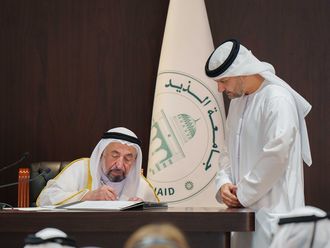
Over the years, business education has evolved with the changing needs of the corporate world. This evolution can be summed up in three distinct waves.
The first wave: This is the period prior to 1959 where business schools focused more on vocational approach. During this period, American business schools responded to the increasing demands of business professionals required in growing companies such as Ford, Standard Oil, General Electric and Carnegie Steel.
To cater to the growing need of professional managers in these companies, business schools adopted a pedagogy based on field experience as compared to a traditional theoretical framework. Thus, business education was comparable to learning a trade, rather than a true academic discipline.
The second wave: This can be marked with the publication of the Ford Foundation report also titled the “Higher Education for Business” report in 1959, in which economists Robert A. Gordon and James E. Howell Ford severely criticised the existing approach towards business education. In their report, they urged business schools to be more academic-research oriented and even include subjects such as mathematics, strategy, arts and sciences in their programs.
As an outcome of their report, several business schools redefined their goals and reworked on their existing curriculum. Since the publication of the Ford Foundation report, business schools have taken a more analytical and discipline-based approach than ever before. But unfortunately, the report failed to emphasise the teaching of the skills of management itself. As a result, for the last 50 years, business schools have emphasised on statistics, analytics, and models.
The third wave: This has its root in the advent of the global financial crises in 2008. In 2010, Harvard business school professors Srikant M. Datar and David A. Garvin and research associate Patrick G. Cullen, in their book, “Rethinking the MBA: Business Education at a Crossroads”, observed the importance of refocusing business education from the existing analytical focus (as proposed in the Ford report) to more skill-based focus. They further observed that this analytical approach failed to develop participants’ global mindset.
That raised an obvious question, how can MBA programs equip their participants for an increasingly globalized business world?
Business schools and different cultures and different countries
This grave concern was echoed in a more recent study, commissioned by Association to Advance Collegiate Schools of Business (AACSB) in 2011, titled “The Globalization of Managements Education: Changing International Structures, Adaptive Strategies, and the Impact on Institutions”. The report observed that business schools are falling behind in preparing participants for careers in an increasingly global world. The findings of the report suggested that business schools need to make deeper and more sustained efforts across their program to help students understand the challenges of conducting business in different cultures and countries.
It is well known now that MBAs today need to develop cultural intelligence, specifically a better understanding of universal practices, strategies, and behaviors.
How can an MBA working with a person or group from another culture be most effective?
Students today need to develop a skill set rather than just knowledge about a country’s economics and political system. They need to understand what it means to be a general manager in a global world and the differences in institutions, norms, cultures, and legal frameworks that constitute the business landscape.
So, how are business schools globally responding to the changing needs?
It is a proven fact that conventional business education focuses solely on business theories and concepts. Of course, this conceptual learning is crucial, but is it sufficient? To succeed in the workplace, one needs to supplement technical skills with two additional elements – global intelligence and real-world skills.
In the past, students studied where they lived. Today, to master the skills that global boardrooms demand, it has become critical for students to leave the shores of their home countries and explore the world beyond. At S P Jain, one degree-three cities refers to S P Jain’s unique tri-city model conducted in the cities of Dubai, Singapore and Sydney. As part of the curriculum, all students rotate through these cities, learning first-hand about multinational business environments and settings.
Other business schools are also gearing to the change.
In 2013, at Harvard Business School, more than 900 first-years embarked on the global immersion component of the new MBA curriculum module known as Field Immersion Experiences for Leadership Development (FIELD). At Texas Christian University (TCU), students seeking global perspective get a 10-day trip to Munich and London.
At University of Michigan’s Ross School of Business’, the “Multidisciplinary Action Projects” (MAP) involves first-year students in an intensive field-study experience where the participants spend an entire semester inside actual organizations trying to resolve real world business challenges.
In the course “Business on the Frontlines,” at University of Notre Dame’s Mendoza College of Business, M.B.A. students learn about the theoretical frameworks and then travel to countries that are trying to rebuild their economies after a war.
Giving students a competitive edge
Similarly, as a part of Business Education 2.0 at SP Jain, students engage in live projects in each city to gain a real-time exposure to regional business practices and cultures. Furthermore, students spend their weekends in structured global immersion activities. During their stay in Dubai, for instance, S P Jain students are taken on educational tours of several historical sites that epitomise Middle Eastern culture.
One may question what these activities have to do with business. Business today is about building confidence and having the right conversation skills, be it at a golf course or at a dinner table. The social skills and cultural insights gained as a result of our emphasis on immersion in diverse cities gives our students a competitive edge. After all, to succeed in a global world, one needs to develop a global mindset.
The author is the Assistant Professor, Finance at the SP Jain School of Globa Management and Director of Larsen and Toubro Global Management Excellence Programme (GMEP).












